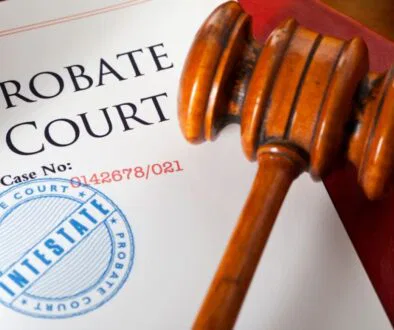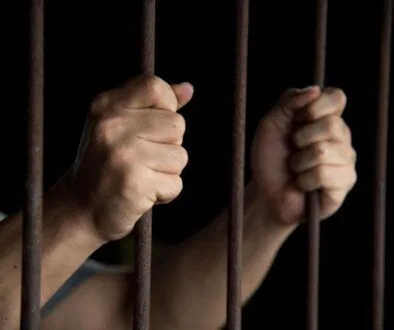Jailhouse Code: Unwritten Prison Rules New Inmates Should Know

Published June 27, 2023
While the official prison rules are usually spelled out in a handbook, many unwritten rules can be as important to follow. These rules can range from cleaning up after yourself or keeping your bunk tidy to never snitching on a fellow inmate or showing respect to influential prisoners. While these unwritten rules can be challenging to decipher, they are essential to survival inside a prison. Anyone who fails to follow them can become a target for violence or exploitation. As such, it pays to research and learn these unwritten rules as soon as possible.
Unwritten Prison Rules
Prisons are unique environments with their own set of rules and codes that govern inmate behavior. These unwritten prison rules, often learned through experience and observation, are crucial in maintaining order and ensuring survival.
1. No Snitching
Most inmates live by one of the most important jailhouse rules: “Don’t snitch.” It’s a code of silence in prison culture, and breaking it can have serious consequences. The idea is simple; inmates don’t want to be someone betraying their fellow inmates or being a “rat.”
2. Mind Your Own Business
Another rule is to mind your own business. This means you should always avoid getting involved in other people’s affairs, even if you can help. By keeping your nose out of other people’s business, you can avoid unnecessary conflicts and focus on staying safe.
3. Establishing Hierarchies
Prisons have their social hierarchies that determine the pecking order among inmates. These hierarchies are often based on factors such as age, length of sentence, reputation, and physical strength. Newcomers are expected to recognize and respect the established hierarchy. Challenging those in higher positions can lead to conflicts and potential violence.
4. Observing Personal Hygiene
Maintaining personal hygiene in prison is a must since prison is dirty. Cleanliness promotes personal well-being and helps prevent the spread of diseases and infections. Basic hygiene practices, such as regular showers, are important to stay healthy.
5. Understanding Prison Slang
Inmates and guards use prison slang use to communicate with one another. Learning and understanding prison slang can help inmates navigate conversations. It can also establish connections and avoid misunderstandings.
6. Fight Back
It’s important to stand up for yourself, even if you’re to get hurt. No matter what, don’t let others mistreat you without standing your ground. When you show that you’re willing to defend yourself, it sends a message to others that you’re not an easy target. This can help prevent them from continuing to bother or harass you.
7. Don’t Stare
Avoid staring at others. Staring can send the wrong message and lead to misunderstandings. People might think you want to start a fight or engage in inappropriate behavior. Remember to be mindful of where you look and respect others’ personal space.
8. Share Food with Others
If you have access to a cooking facility with a microwave, it’s a kind gesture to share it with others. Sharing is a positive action that can earn you respect from your peers. Sharing helps build good relationships with others, and it’s always better to have fewer people who dislike you.
9. Have Means to Pay
Always have enough money in your account or keep some spare items, like cigarettes, in your locker to pay off any debts you may have. This is because debts are taken seriously in prison, and if you owe someone and don’t pay, it can lead to physical harm. Even small amounts can escalate, resulting in serious consequences.
10. Keep a Copy of Your Documents

ADVERTISEMENT
It’s important to keep a copy of your legal documents, like your rap sheet or court documents, in your locker to prove your background and avoid unnecessary complications. This is because there might be instances where you are transferred to a different facility without much notice. When you arrive at the new place, the local gang leaders may send their members to assess you. They want to make sure that you are not involved in serious offenses like rape or child abuse. If they find out that you are, it can lead to serious trouble for you.
11. Avoid Lifelong Prisoners
Avoid associating with individuals serving life sentences or being imprisoned for more than 20 years. By this point, their mindset may have changed, and they may not value life or care about the consequences of their actions. They might be willing to harm over trivial matters because they feel they have nothing to lose.
12. Don’t Talk Badly to COs
Avoid conflicts with correctional officers (COs) or guards. COs can make your life difficult in prison, even more so than other inmates. When interacting with a CO, do not treat them like police officers on the street by being disrespectful or confrontational. Such behavior can lead to prisoner punishments and make your time in prison even more challenging.
13. Don’t Act Tough
It’s important not to try to act tough unless you have earned that reputation. Acting tough without a genuine background can lead to trouble and make your situation worse.
14. Tell Your Real Charges
Gang members can check your “paperwork” and other information about you online through their prison visitor. Rules are not to lie or fabricate your charges while in prison. They have access to resources like Google that can reveal the truth about your criminal history.
15. No One Wants a Rapist
If you have committed a serious offense like child abuse, understand that your actions have consequences. In prison, for your safety and the well-being of others, it is advisable to request placement in protective custody. Other inmates do not want to associate with those who have committed such crimes.
16. Stay With Your Race
While diversity and acceptance are valued in society, it is better to stick with people from your racial background inside prison walls. If you don’t follow these guidelines, you risk facing physical harm or getting into fights.
17. Don’t Trust Anyone
It’s common for people to focus on their interests above others. Thus, everyone is looking out for themselves. It’s important to be discerning and cautious when placing trust in others. Always prioritize your well-being and make informed decisions about who you choose to trust.
18. Leave It
Leave it untouched if you didn’t place something in a particular spot. This may cause occasional frustration during your time in prison, but it’s always better than getting into conflicts.
19. Knock
When people are doing private time with themselves or their prison wife. Rules are to be aware and knock before entering, for they usually cover the window or opening into the room with clothing. Respect others’ privacy and avoid entering spaces where these activities occur.
20. Fall in Line
Avoid cutting in front of anyone, even if another inmate allows you to, because the people standing behind them might not feel the same way. Respect the order and fairness of the line; everyone has an equal opportunity to access the necessary services or resources.
Conclusion
Navigating the unwritten prison rules is a daunting task for inmates. The importance of respect, establishing hierarchies, racial and gang affiliations, and adherence to unwritten codes all contribute to the delicate balance within correctional facilities. By understanding and respecting these rules, inmates can increase their chances of survival, reduce conflicts, and work toward successful rehabilitation.
Reduce Your Jail Call Costs By Up To 90% Per Minute With GlobalTel
GlobalTel’s inmate calling service lowers jail call per minute rates by up to 90% for jail calls from US facilities. Sign up now and use the special jail call phone number we create for you to eliminate the long distance jail call fees. Try GlobalTel for only $45.99 for 90 days. Make US/domestic and international jail calls at the local rate and stay connected to your incarcerated loved ones for less. Learn more about how to sign up for calls from inmates here.

This Content Is Fact Checked
Our esteemed team of specialists has thoroughly validated the accuracy of this information. Discover further details about the rigorous editorial guidelines for our website here.
ADVERTISEMENT

About The Author
Krizzia Paolyn is an SEO Specialist with a bachelor’s degree in Psychology. It has always been her passion to share her voice, and at the same time, to encourage other people to speak up.




